ERICHTHONIUS, THE CHILD HERO OF ATTICA
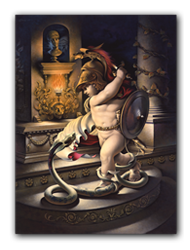
Long before Poseidon tried to wrest the kingship from Erichthonius, he had contended with Athena for supremacy in Athens, but the pair of swift steeds he brought into being as an enticement for the occasion failed to impress Athena's subjects. The goddess responded to her uncle's quest for territory by calling forth out of the elements a divine olive tree. Despite the many ruses the god of the seas rung on the scales of deception, Zeus awarded the contest to his favourite daughter.
Not to be thwarted, Poseidon tried his luck once more; this time in the guise of a benevolent sea-serpent promising immunity from sea-borne invaders who, like himself, considered Athens theirs for the asking. After all, no throne was more desirable than the cherished one on Attica.
A while earlier Agea had engendered Hephaestus' seed in the womb of the earth and Athena claimed the child as her own, placing him in the sarcophagus of the ancient temple serpent of Athens for safety; there to be guarded day and night by the six virgin caryatids. Athena, knowing of her uncle's intentions, laid her mantle on the young shoulders of Erichthonius. Then having invested him with her own glorious helmet, sent him forth in the lion power of Heracles to chase the interloper back into his kingdom of the seas. The ensuing conflict left its impression for posterity in the chronicles of time. To this very day, Poseidon vies with his Olympian relatives for mastery of the land.
The child here established his throne on the Attica of Athens and erected there the first
temple for Athena, on the site which now bears the present Erechtheum with its beautiul
porch of six maidens.
- DANIEL
There are two finely detailed porches, each supported by four caryatids, on the North
and South sides of St. Pancras' church in London; the church being based mainly on
the proportions and structure of the Parthenon and Erechtheum. St. Pancras' church
was designed by an extraordinary classical scholar named William Inwood, who
believed he had practised as an architect in ancient Greece. He brought his experience
and secret knowledge to practise once again in the latter-day Athens of London. Often
when I visit St. Pancras church I stand spellbound; then I wander off to the nearby
British Museum to gaze in wonder at the originial Caryatid and Ionic column from the
Erechtheum.
- LJO
HOME |
LEWIS J. OBI MD, FSRA |
SERENDIPITOUS JOURNEY |
CONTACT
ABOUT DANIEL |
DANIEL GALLERY |
CATALOG RAISONNE |
DANIEL LITHOGRAPHS
The Daniel Gallery | Copyright © 2012 ObiArts, Inc. | All rights reserved
Web Site Design, Web Hosting & Search Engine Optimization by BoomClient
![]()








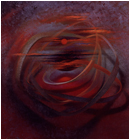











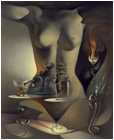
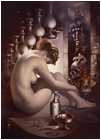


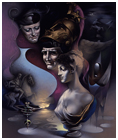

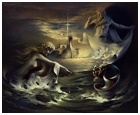


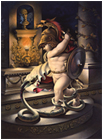


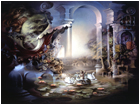


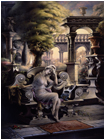
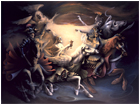


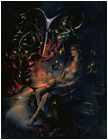


 VISIT US ON FACEBOOK
VISIT US ON FACEBOOK